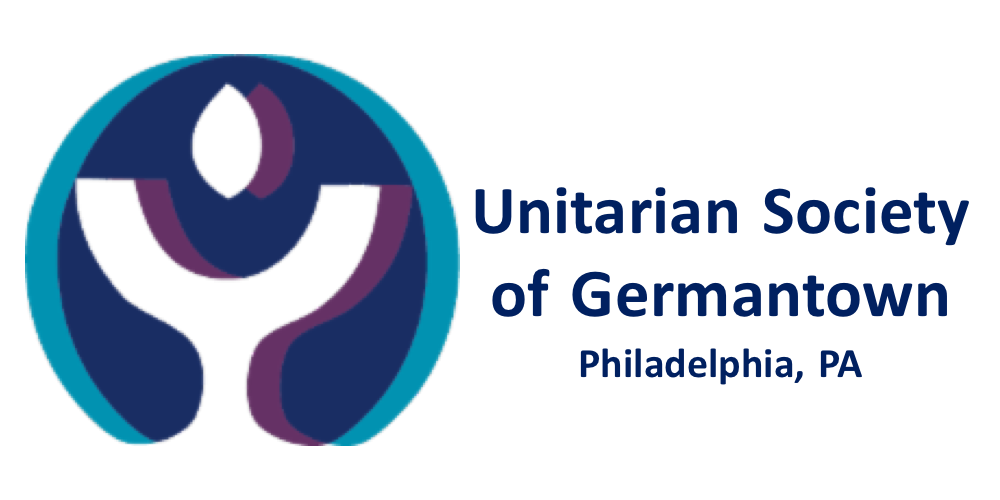Widening the Circle Book Group
We are currently reading Mistakes and Miracles, Nancy Palmer Jones and Karin Lin, the UUA’s 2022-23 Common Read. The book looks at what calls Unitarian Universalists to create multicultural, antiracist Beloved Community, what congregations need when they embark on this journey, and what common threads run through their stories. Nancy Palmer Jones and Karin Lin—a white minister and a lay person of color—share how five diverse congregations encounter frustrations and disappointments, as well as hope and wonder, once they commit to the journey. Mistakes abound. Miracles of transformation and joy emerge too.
Treva Burger and Rev. Latifah Griffin are facilitating these discussions using adapted materials from the UUA. Please join us at https://bit.ly/USGwidenthecircle
For the fourth and final session scheduled for June 5, please finish the book. The book is available from the UUA bookstore, from Amazon as a kindle version-you can put the Kindle app on any device- or an audio book.
Contact WideningtheCircle@usguu.org with questions. You are welcome even if you cannot attend all the sessions, but please read all the chapters to keep pace with the group.
We will answer the following questions to create recommendations for lessons USG could learn from the other congregational stories:
Helpful Questions for Creating a Strategy
What changes will have most impact for achieving our intention?
What power do we (change-seekers) have to make change? Who else holds power to block change or to make change possible?
What relationships do we need to develop?
What methods do we use (what actions)?
What will compel those with the power to deliver the change the community needs?
How will we sustain ourselves, as we face opposition or burn-out?
How do we measure outcomes?
How can we sustain the changes we make?
An example of how the San Jose congregation might have answered these questions:
In San José, where many members and local community members spoke Spanish, change-makers wanted to build a multiculturally diverse faith community. That was their intention. Let’s look at their strategy to achieve that intention, using some of the helpful questions we’re working with.
Q: What changes will have most impact for achieving our intention?
- Offer Spanish-language worship to meet the needs of a spiritually under-nourished part of the congregation.
Q: What power do we (change-seekers) have to make change? Who else holds power to block change or to make change possible?
- Senior minister Rev. Lindi had power as a leader; basement-meeting group of the people doing the translation work plus the visioning had the power to set direction; congregants who would fund the changes held monetary power, although they weren’t necessarily initially supporters of the change.
Q: What relationships do we need to develop?
- More people in the congregation were needed to support the change. The change-makers needed to demonstrate the value of adding Spanish worship in order to engage the wider congregation’s support.
Q: What methods do we use (what actions)?
- The change-seeking group created a compelling vision with enough work toward completion to convince the congregation that Spanish-language worship was do-able, affordable, and worth it. Rev. Lindi invited the broader congregation into conversations about it. Then, they began to hold services in Spanish and include some Spanish in general worship. While some congregants objected, the change-seekers decided to, in Rev. Lindi’s words, “pay attention to the health and build on it.”
Q: How do we measure outcomes?
- The Spanish worship—the original desired outcome—kept going for 20 years because of the leaders’ flexibility, and national attention and support.
- After sunsetting Spanish worship, the congregation continued moving toward multiculturalism by engaging in renewed antiracism work. The increase of interest in learning and leaning into multiculturalism is another outcome that could by measured by how many or what percentage of congregants participate.
Q: How can we sustain the changes we make?
- Think about the greater purpose as well as the specific change. In San José, the desired outcome was greater than adding Spanish-language worship. It was a change of mindset in the congregation that the needs of any congregants who are racially, culturally different from the dominant group are the needs of the whole congregation. This greater outcome is sustained because now a larger group than the original group working for Spanish-language ministry is committed to the greater purpose.
There is also a recorded Zoom workshop, We Can Do This: Faith, Conflict, and Antiracism (Vimeo, 56:00), from the UUA General Assembly 2020 on-demand video library. Co-authors Jones and Lin moderate a discussion based on Mistakes and Miracles with Unitarian Universalists Aisha Hauser, Jimmy Leung, Rev. Bill Sinkford, and Rev. Marta Valentin.
Other books that have been recommended for widening the circle:
The Darkness Divine, by Kristen L. Harper
https://www.uuabookstore.org/The-Darkness-Divine-P18949.aspx
Now being used to guide discussion in the White Antiracism Discussion Group which begins February 8 and continues on the following four 2nd Wednesdays.
Centering, Mitra Rahnema, Editor
https://www.uuabookstore.org/Search.aspx?k=centering
Disability Visibility, Alice Wong
https://www.penguinrandomhouse.com/books/617802/disability-visibility-by-alice-wong/
She’s Not There, a memoir by Jenny Boylan
https://www.penguinrandomhouse.com/books/16892/shes-not-there-by-jennifer-finney-boylan/
Melissa by Alex Gino- YA book about a trans girl
http://www.alexgino.com/books/melissa/
Trans Bodies Trans Selves: A Modern Manual By and For Trans People, by Laura Erickson-Schroth
http://transbodies.com/second-edition/
Gender Born Gender Made, by Diane Ehrensaft https://theexperimentpublishing.com/catalogs/winter-2011/gender-born-gender-made/

